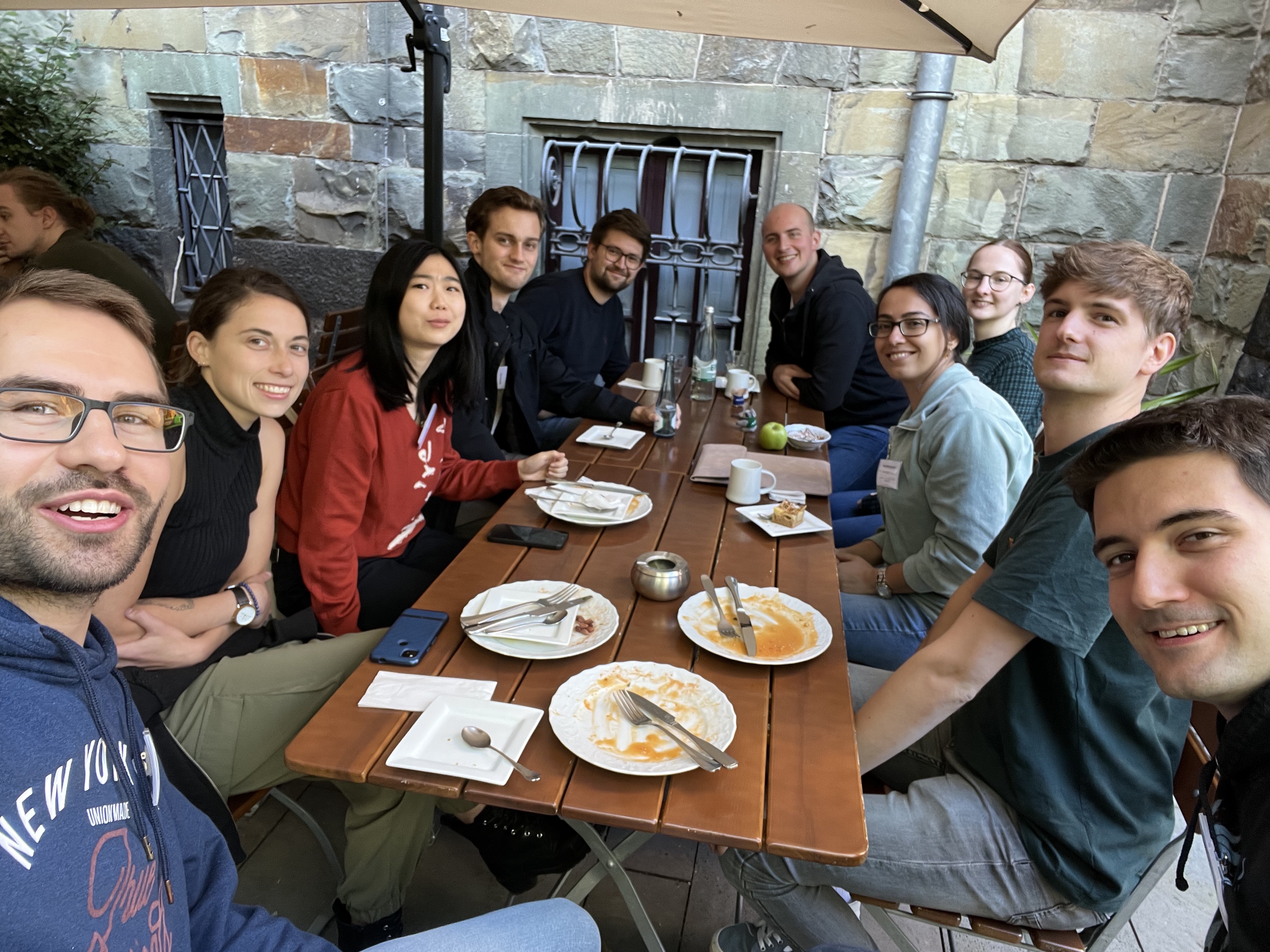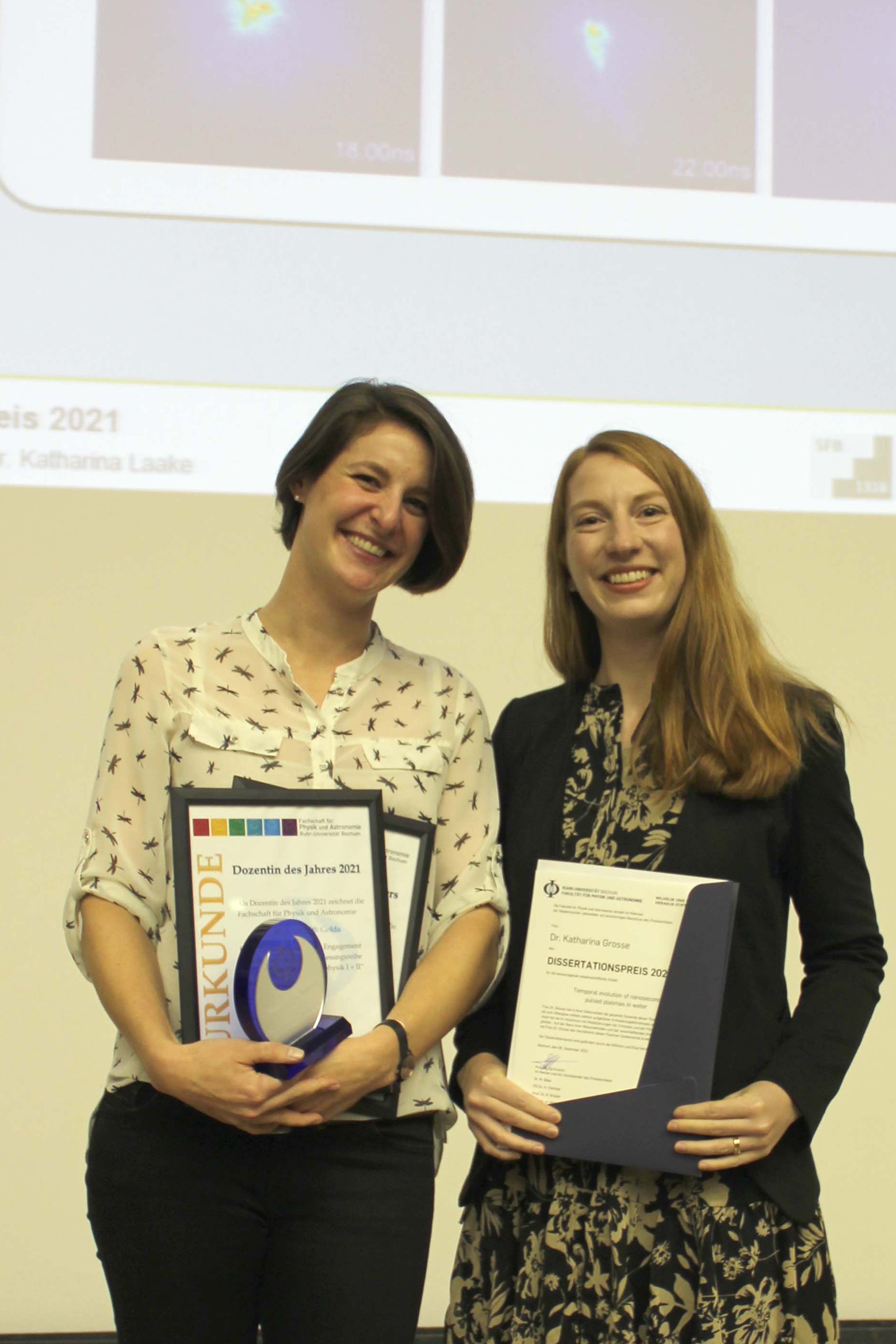- Details
Company outing Chair and working group 2023
Today we took to the sand together with the Chair of Experimental Physics II: we played various ball sports at Blue Beach in Witten. Afterwards we enjoyed pizza from the stone oven in a shared flat.

- Details
ISPC 25
Scientists from PIP and EP2 visited the ISPC conference in Kyoto. Many poster and oral presentations have been presented. Simon Kreuznacht received one of the awards for best oral presentation at the ISPC in Kyoto 26.5.2023. He reported on the analysis of methane pyrolysis by microwave plasmas.
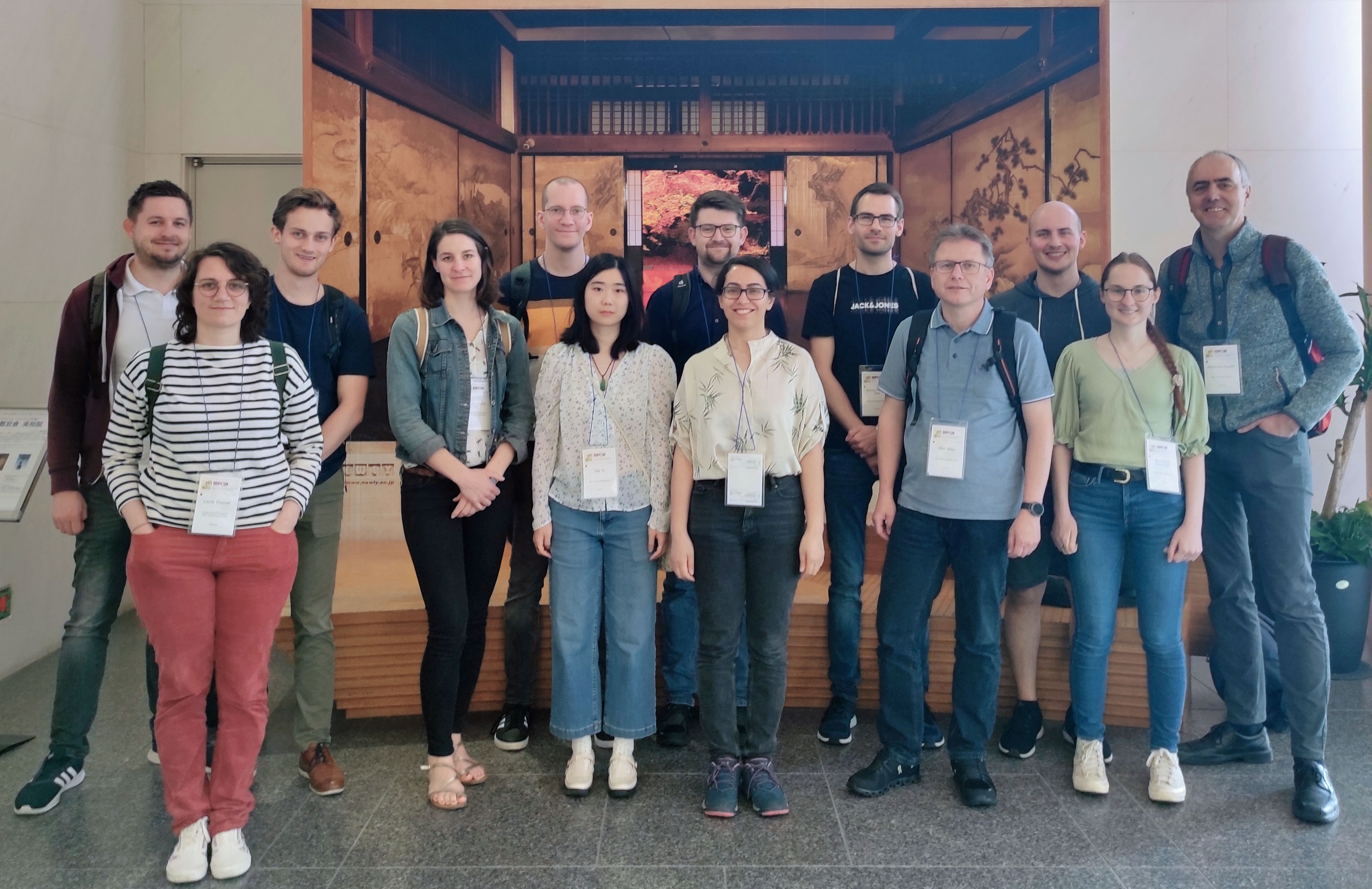
- Details
DPG spring meeting
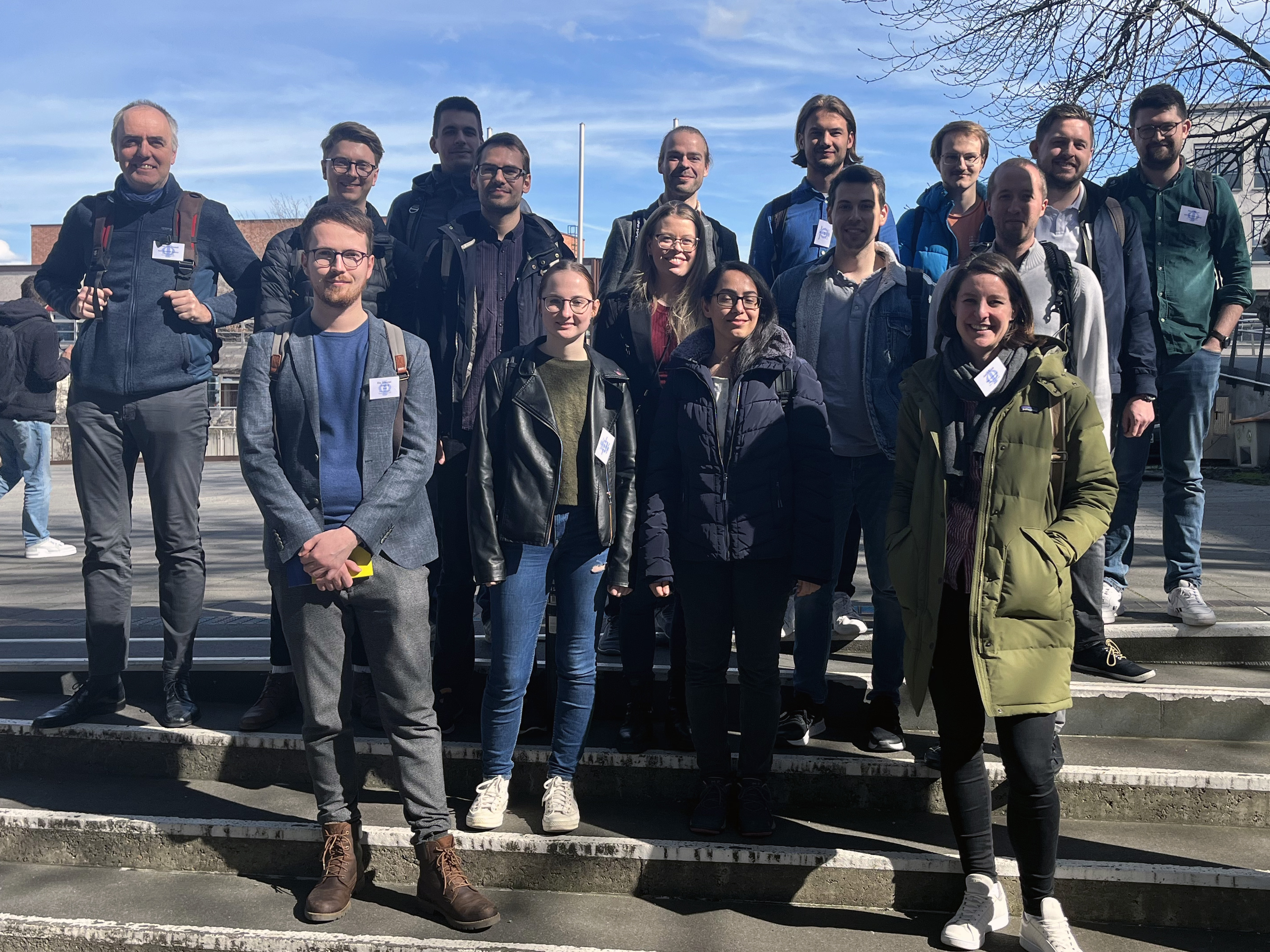
At the annually DPG (German Physical Society) meeting, the plasma groups from RUB campus had many contributions during this event. At least eleven oral presentations including one invited talk as well as eleven poster presentations were given by CRC 1316 members.
- Details
Henrik van Impel‘s outstanding Bachelor thesis
Congratulations to Henrik van Impel, who won the student award of Ruhr University Bochum with his bachelor thesis "Diagnostics of atomic oxygen in a micro-cavity plasma reactor". He received his certificate during the yearly celebration of the University hosted by the Rector of the University.
In his bachelor thesis, Mr. van Impel used actinometry to investigate the formation of atomic oxygen in a plasma array reactor. With his finding, he made an important contribution to project A6 in CRC 1316.
- You can find further information on the work and publications within project A6 on its project page.
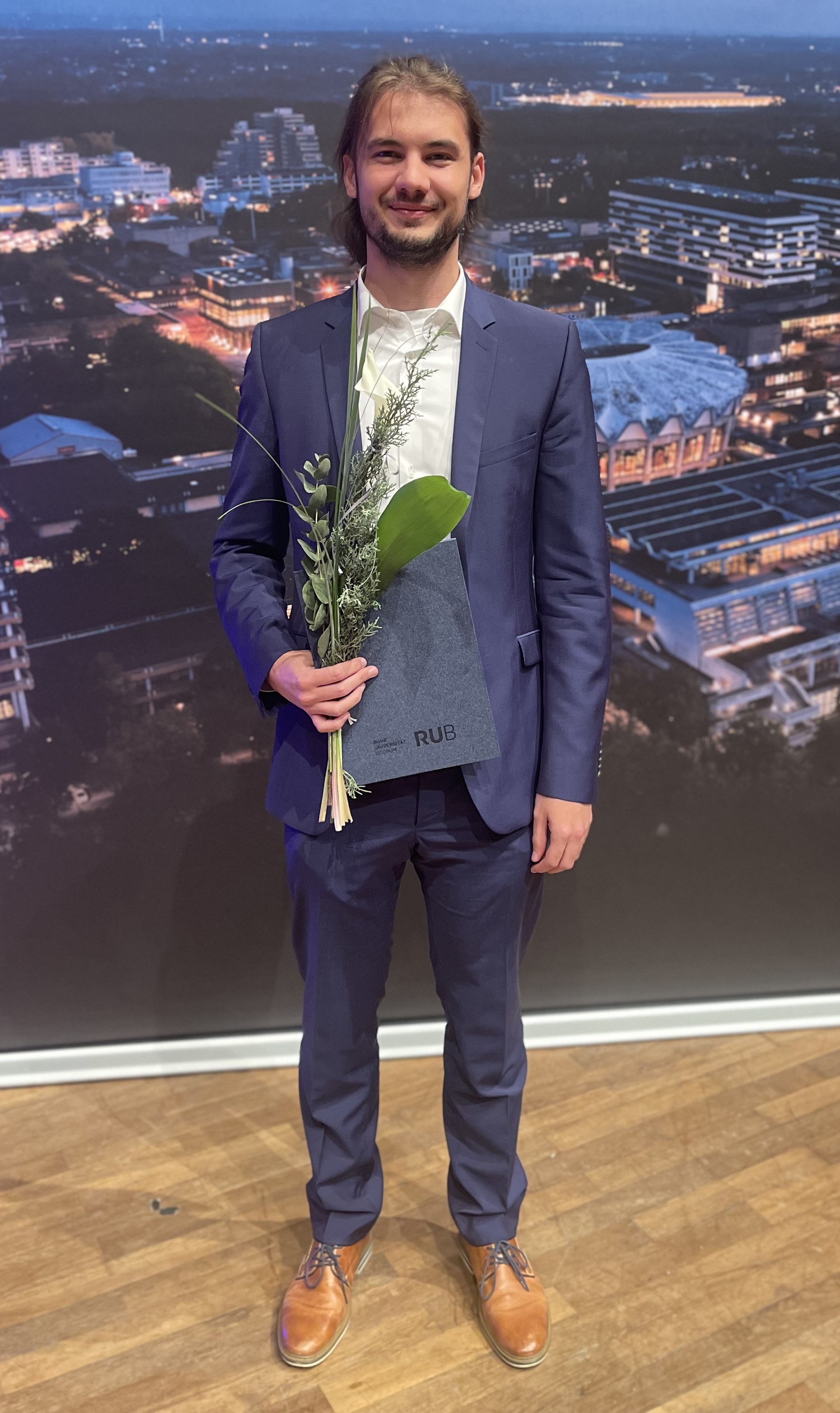
- Details
Academic anniversary and lecturer of the year
On Friday, 21.10.2022, the Chair and the EP2 working group had the honor of hosting the Academic Graduation Ceremony of the Faculty of Physics and Astronomy. All graduates with degrees from the summer semester 2021 and the winter semester 21/22 were celebrated. Maike Kai and Philipp Maaß moderated the event.
In addition to a presentation of research on low-temperature plasmas and short experiments, the Wilhelm and Else Heraeus Foundation Dissertation Prize was awarded to Dr. Katharina Laake and the Student Council Prize for the Lecturer of the Year 2021 was awarded to Junior Professor Judith Golda.
Many thanks to everyone who participated and made the day a great experience and congratulations to all graduates!
Judith Golda and Katharina Laake
- Details
Research stay at GREMI laboratory
From 14 November to 19 November, Jun.-Prof. Judith Golda and Dr. Sebastian Burhenn visited the laboratory of Prof. Claire Douat at the GREMI in Orléans for a joint research campaign. This time, the work was focused on the measurement of plasma-produced carbon monoxide affecting human hemoglobin. The trip was funded by a DAAD PROCOPE project to improve cooperation between RUB and GREMI.
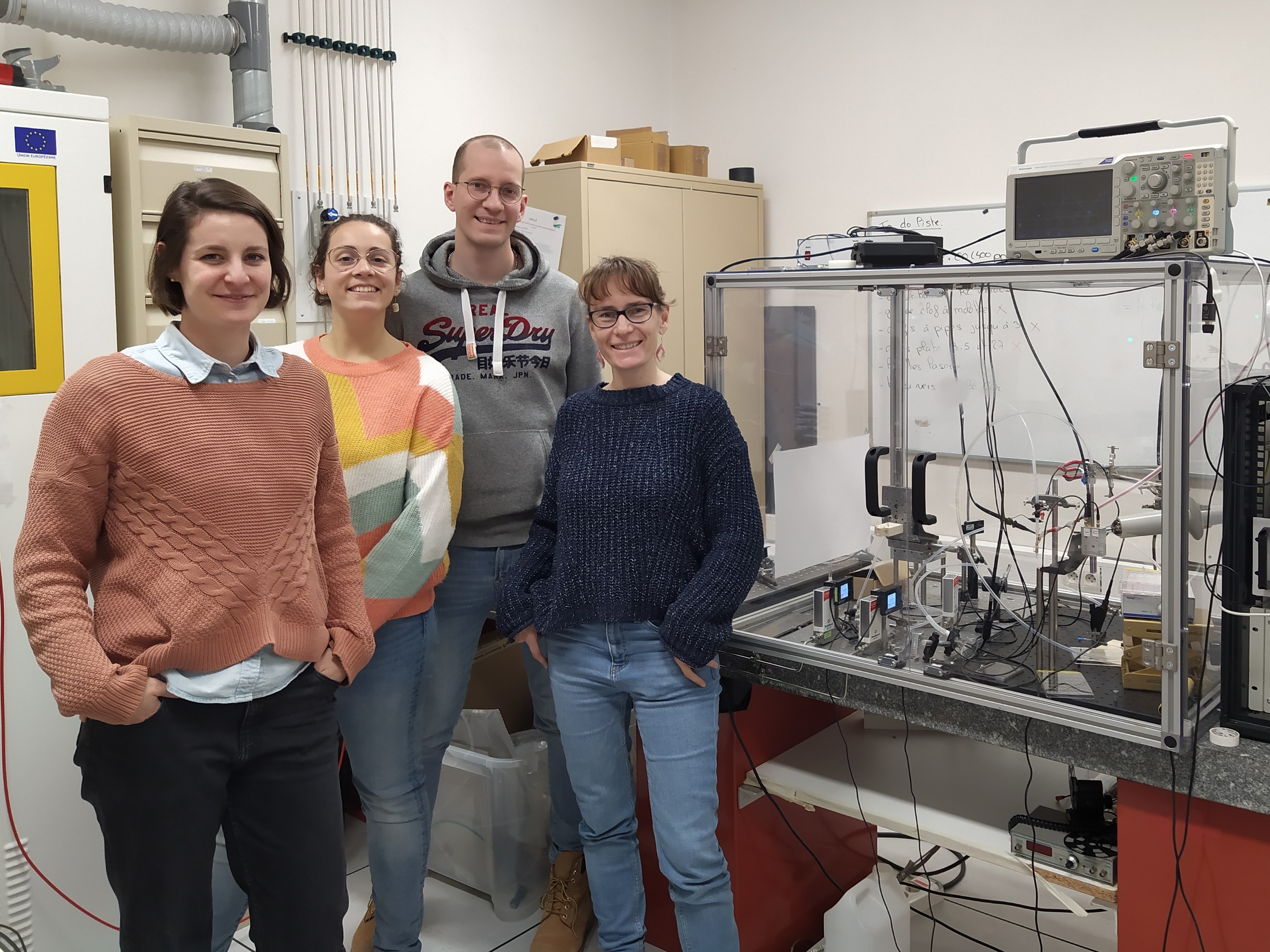
- Details
CRC 1316 members joining the International Plasma School
A large group of ten people from the SFB 1316 consortium participated in the 25th International School on Low-Temperature Plasma Physics. To deepen their knowledge of plasma science and technology, the PhD students from Bochum and Ulm attended the plasma school for one week. In addition to lectures, the school's program also included workshops and poster sessions.
